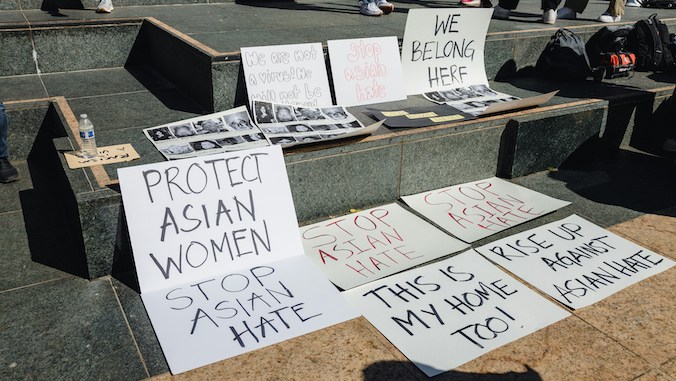
Amid the aftermath of heightened xenophobia and racism toward Asian Americans during the COVID-19 pandemic, faculty from the University of Hawaiʻi at Mānoa Thompson School of Social Work & Public Health exposed the challenges and resilience of these communities in three publications.
Yeonjung Jane Lee, Sophia Lau and Clifford Bersamira, alongside master of social work student Jaron Yamauchi, aimed to address anti-Asian racism by understanding the experiences of Asian American social workers with the current climate of division and hostility.
“We saw community members in action, mobilizing, advocating and supporting one another,” Lau said. “We felt it was imperative that, as frontline workers during the COVID-19 pandemic, Asian American social workers’ stories, experiences, as well as their recommendations on advocacy efforts to combat anti-Asian racism were heard.”
The team interviewed 17 social workers across the nation. Their collaborative efforts helped shed light on the multifaceted nature of discrimination and its implications. Their findings were published in Social Work, Journal of Social Work and Journal of Gerontological Social Work.
Among the findings:
- The damaging impact of stereotypes, such as the model-minority and perpetual foreigner tropes, which perpetuate unfair pressures and ostracization.
- The urgent need for social work education to better equip students with tools for supporting marginalized communities and for workplaces to address bias and discrimination.
- The call for specialized support for older generations of Asian Americans, who are more vulnerable to mistreatment yet may hesitate to report incidents.
“Our hope is that this study encourages future research on how we can support Asian American social workers and those from other marginalized communities and address their needs,” Bersamira said.
Lau added, “Raising visibility about the unique circumstances that Asian Americans experience that includes their strengths and resiliency is critical on so many levels. In addition to the diverse ways bias and discrimination can look and be experienced, understanding the scope and intensity of these issues can support more meaningful interventions and outcomes.”
—By Maria Pou

